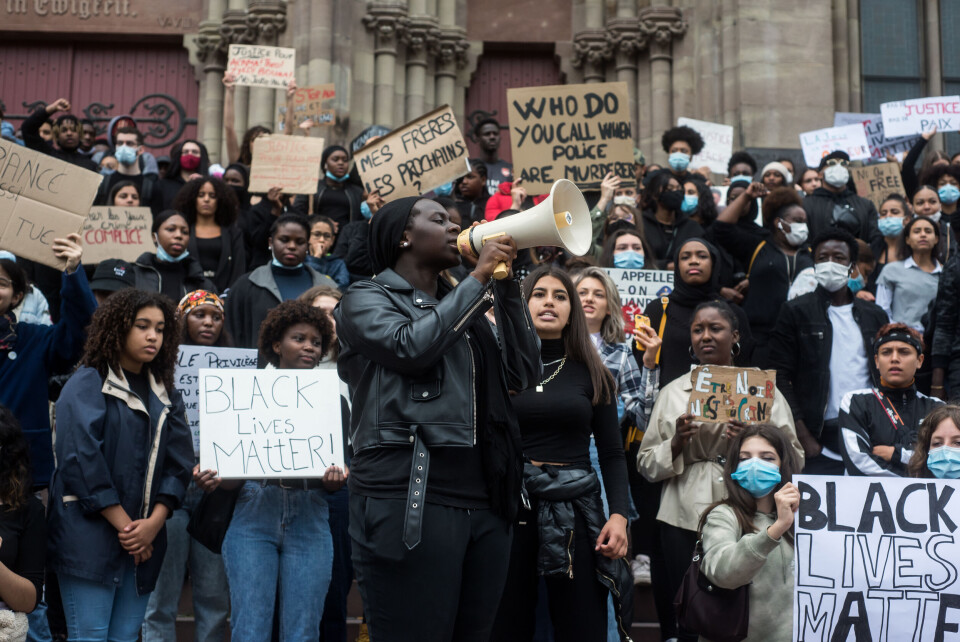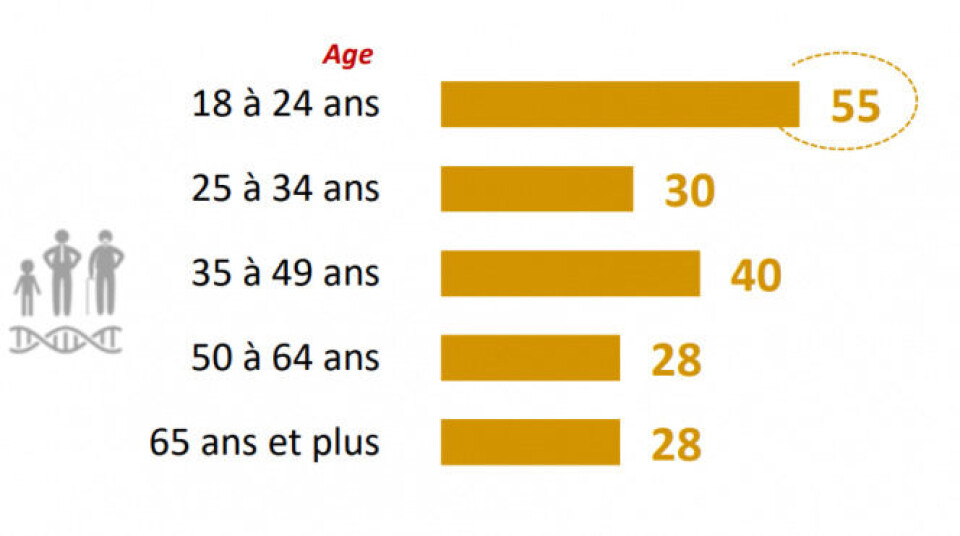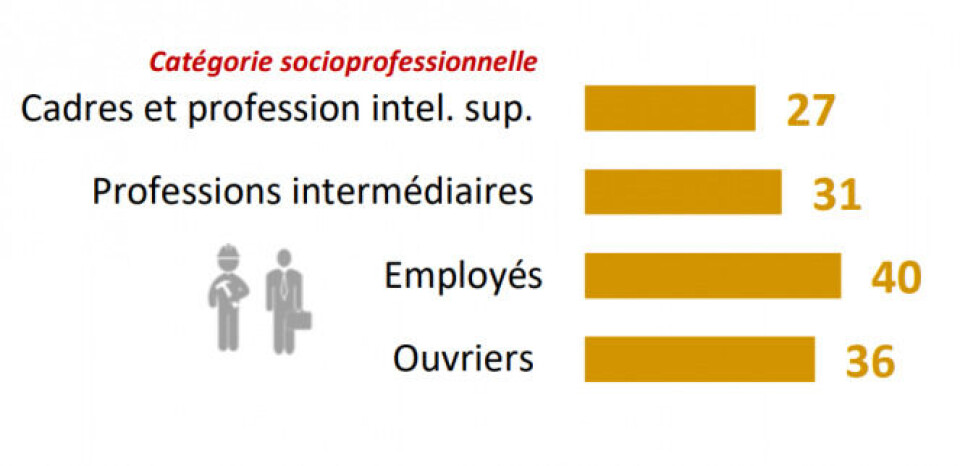-
Top Paris restaurants to sell off 20,000 tableware items
Pieces set to go on sale include glassware, cutlery, and silverware, as well as bistro tables and chairs. Money raised will go in part to charity
-
2025 world economy rankings: France classed above the UK and US
France’s low inflation rate helped it beat many other nations
-
Speed, alcohol, drugs: French ski resorts take action
Behaviour of some skiers a cause for concern as severity of injuries worsens
Racism still seen as a key problem in France despite rise of far-right
Discrimination in the workplace has more than doubled in the public sector in the past 14 years, according to a new survey

Sixty-two percent of people who took part in a recent poll in France believe that it is necessary to tackle racism vigorously.
This compares to 59% in 2002 and 60% in 2012, based on similar surveys.
The latest study by Ifop published yesterday (March 21) comes ahead of the presidential elections in April in which far-right, nationalist candidates are polling better than ever before.
Marine Le Pen (Rassemblement National) and Éric Zemmour (Reconquête) have a combined support of over 30% of the electorate, according to the latest polls.
In 2017, far-right candidates got a total of 26% of votes in the first round of voting.
Read more:French election candidate Eric Zemmour found guilty of hate speech
Thomas Pierre, a researcher at Ifop involved in the latest study, said that racism continues to be an issue in France.
“Despite the scale of action taken on this subject in recent years, this type of problem does not necessarily seem to be disappearing,” he said.
“On the contrary, the proportion of employees who have experienced discrimination in recruitment has almost doubled in a dozen years, rising from 5% in 2008 to 12% in 2022 in the public sector, and from 8% in 2008 to 13% in 2022 in the private sector.”
Who thinks racism is an issue in France?
Of the people polled, 26% believe that racism is “absolutely” a problem in France, and 8% believe it is not at all a problem.
The biggest segment of people, 36%, said that racism is somewhat of a problem (plutôt un problème).
21% of people polled said they think it is “not really” a problem, and nine percent said they did not know.
The 62% total mentioned at the beginning of this article includes the proportion of people who think racism is “absolutely” a problem and people who think it is “somewhat of a problem”.
City versus countryside
In Paris and the surrounding area, 44% of people polled think that racism is a key issue. This drops to 32% for people from other cities and urban areas in France, and to 26% for people from rural areas.
Young versus old
Younger people are more likely to think that racism is a key issue.
55% of people aged 18 - 24 believe it is a major problem. This is compared to 30% for people aged 25 to 34, 40% for people aged 35 to 49, 28% for people aged 50 to 64, and 28% for people aged over 65.

Managers versus manual labourers
People in typically lower-paid professions were more likely to say that racism and discrimination is a key issue.
Of the people polled in management or senior positions, 27% said they thought it was a key issue.
This is compared to 31% of people in intermediate positions, 40% of employees, and 36% of manual labourers.

Right-wing versus left-wing voters
People who intend to vote for left wing candidates are more likely to say they believe that racism is a key issue, compared to those intending to vote for right-wing candidates.
Below, we show what percentage of people intending to vote for the top six most popular candidates believe that racism is a key issue.
-
Yannick Jadot - Europe Écologie Les Verts (Green, left wing): 80%
-
Jean-Luc Mélenchon - La France Insoumise (left wing): 77%
-
Emmanuel Macron - La République En Marche (centrist): 72%
-
Valérie Pécresse - Les Républicains (right wing): 58%
-
Marine Le Pen - Rassemblement National (far right): 53%
-
Éric Zemmour - Reconquête (far right): 39%
Ethnic minorities
People who considered themselves to be part of an ethnic minority are more likely to say that racism is a key issue (44%) than people who do not consider themselves a part of an ethnic minority (33%).
Who has been discriminated against and in what situation?
The poll also looked at in what situations people have faced discrimination.
Of the people who consider themselves to be a part of an ethnic minority, 51% said they had experienced discrimination while looking for a job. The poll does not specify the extent of the discrimination.
Some 36% of these people said they had faced discrimination looking for accommodation, 32% when stopped by police or security, 24% when entering a bar or nightclub, and 17% when looking to take out a loan or insurance through a bank.
Racism not the discrimination people most concerned by
Respondents of the poll were asked which types of discrimination were key when choosing a presidential candidate.
Racism and discrimination based on a person’s ethnic origins only came out as the sixth most chosen form, out of nine options. Just 33% of respondents said this issue was a determining factor in their vote.
Ahead of it were:
-
The fight for "human rights" and the respect of human rights in France: 58%
-
The fight against disability-related discrimination: 50%
-
The fight against sexism and sexual discrimination: 50%
-
The fight against discrimination related to physical appearance (e.g. obesity): 37%
-
The fight against hatred towards homosexuals, bisexuals and transgender people: 36%
Lower on the respondents’ priorities were:
-
Discrimination linked to area you live in: 30%
-
Discrimination linked to religious beliefs: 29%
-
Defence of immigrants and the fundamental rights of foreigners in France: 23%
The results are based on two separate polls. The first was answered by 2,000 people in the general public aged 18 and over. The second was answered by 4,026 employees aged 18 and over.
Related articles
‘When I am president’: The key policies of final 12 French candidates
‘Why the ‘great replacement’ theory does not make sense in France’
























